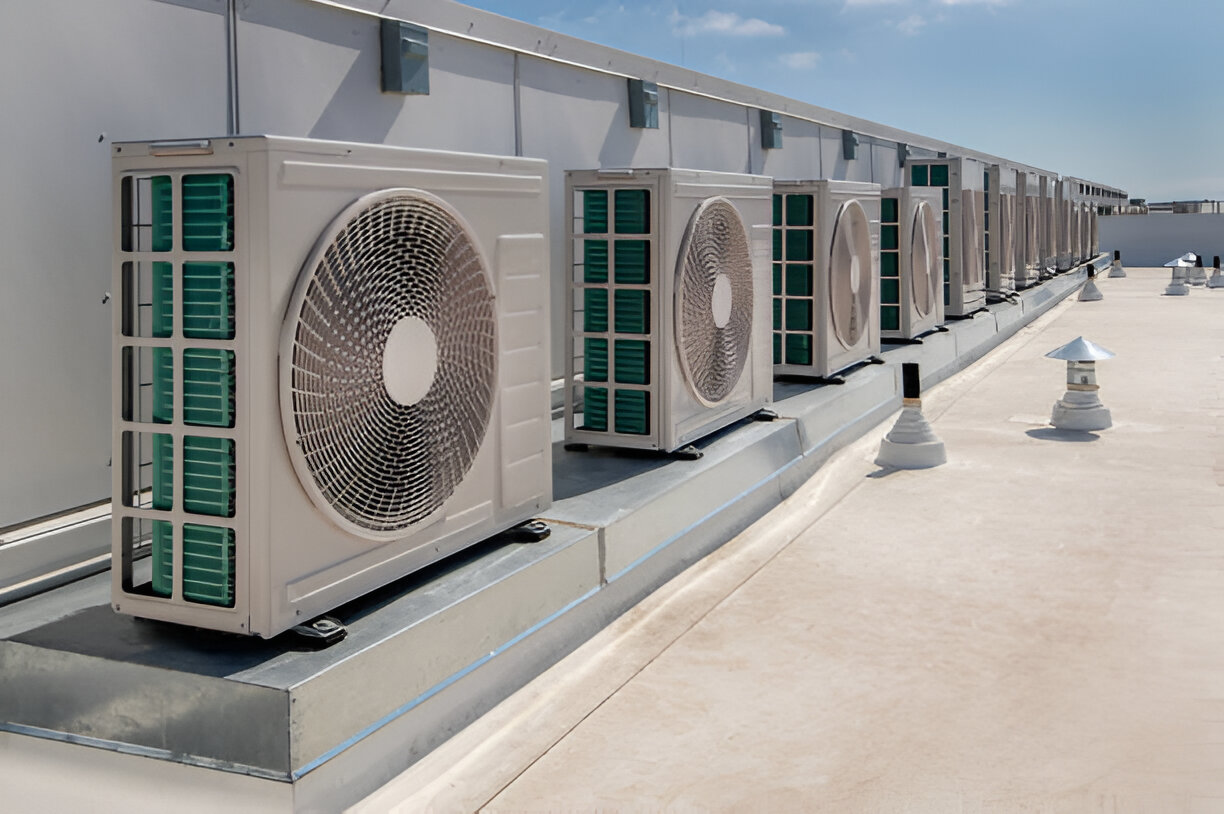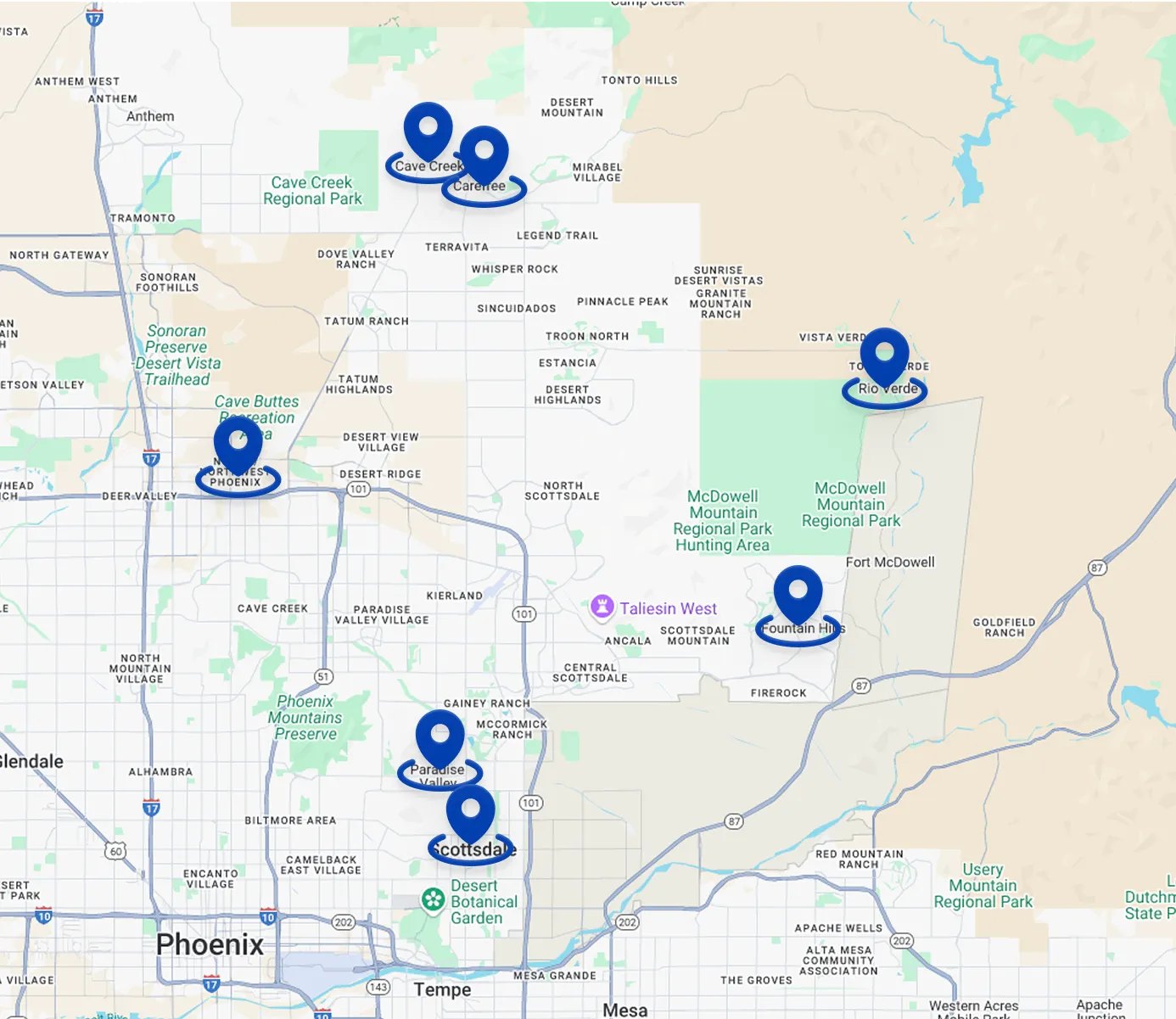HVAC Repair in North Phoenix, AZ
When your home’s heating or cooling stops performing, it becomes more than an inconvenience — in North Phoenix’s summer heat and winter temperature swings, a reliable HVAC system is essential for comfort and safety.

Why timely HVAC repair matters in North Phoenix
North Phoenix households face long, hot summers, frequent dust and monsoon storms, and occasional cold snaps. These factors accelerate wear on air conditioners, condensers, filters, and ductwork. Prompt HVAC repair in North Phoenix helps:
- Restore safe, consistent indoor temperatures during extreme heat
- Prevent more costly failures caused by running equipment under strain
- Improve energy efficiency to lower high utility bills during the cooling season
- Maintain indoor air quality when dust and pollen levels spike
Common HVAC problems in North Phoenix homes
Most residential repair calls in North Phoenix involve predictable issues driven by climate and age:
- Air conditioner not cooling: refrigerant leaks, failed compressors, clogged coils, bad capacitors, frozen evaporator coils
- Weak airflow or uneven cooling: failing blower motor, dirty filters, blocked return vents, duct leaks
- Short cycling or frequent on/off cycles: thermostat faults, oversized equipment, electrical issues
- Heating failures (furnace or heat pump): failed igniter or flame sensor, pilot or gas valve problems, reversed heat pump reversing valve, defrost cycle issues
- Ductless (mini-split) problems: inverter board failure, refrigerant leaks at connections, indoor unit clogs or faulty condensate pumps
- Strange noises or odors: loose fan blades, failing bearings, electrical arcing, or burnt components
- Drainage and condensate issues after monsoon storms: clogged condensate drains or pan leaks
Diagnostic procedures: how technicians find the root cause
A thorough diagnostic distinguishes short-term fixes from long-term solutions. Standard diagnostic steps for HVAC repair in North Phoenix include:
- System history and symptom interview: when the issue began, frequency, and any recent work
- Visual inspection of indoor and outdoor units for corrosion, debris, or storm damage
- Thermostat calibration and control checks
- Airflow measurement and static pressure checks
- Electrical testing of capacitors, contactors, motors, and control boards
- Refrigerant pressure checks and leak detection using electronic detectors or dye
- Combustion and venting analysis for gas furnaces
- Drain and condensate system inspection after monsoons or heavy dust events
Diagnostics typically produce a written repair estimate explaining options and priorities.
Common repair options and what they involve
Repair choices will depend on age, efficiency, and homeowner priorities. Typical repairs for HVAC systems include:
- Refrigerant leak repair and recharge (with EPA 608-certified technicians)
- Replacement of capacitors, contactors, fan motors, and blower assemblies
- Compressor replacement or replacement of outdoor condensing unit components
- Thermostat replacement and system recalibration
- Furnace repair: igniter or flame sensor replacement, gas valve servicing, control board repair
- Heat pump repairs: reversing valve service, defrost control, compressor or reversing assembly work
- Ductless system repairs: indoor unit cleaning, inverter board replacement, line set leak repair
- Condensate drain clearing or installation of auxiliary drain or pump
Typical repair timelines and emergency response
- Diagnostic visit: usually 30 minutes to 1.5 hours depending on system complexity
- Minor repairs (capacitor, filter, sensor): often completed same day within 1 to 3 hours
- Major component replacement (compressor, condensing unit, control board): can take 2 to 6 hours on site; parts availability may extend timeline
- Refrigerant leak repair: depends on leak location; small repairs same day, extensive leaks may require line replacement and additional visits
- Emergency/same-day response: available for extreme conditions such as total AC failure during heat waves or no heat during cold snaps; response times vary by provider and demand
Prioritizing same-day service during summer heat is crucial in North Phoenix to prevent health risks and property damage.
Parts, warranties, and quality considerations
- OEM vs aftermarket parts: Original manufacturer parts maintain performance and warranty integrity; aftermarket parts can be cost-effective for older systems
- Warranties: equipment typically carries manufacturer warranty for major components; labor warranties vary by provider and commonly range from 30 days to one year depending on the company and scope of work
- Documentation: expect a written parts and labor warranty with any repair, and clear notation if OEM warranty coverage is affected
Technician qualifications and safety
Qualified technicians for HVAC repair in North Phoenix should hold:
- Relevant state contractor or HVAC licensing and business insurance
- EPA 608 certification for refrigerant handling
- Ongoing manufacturer training (for brand-specific electronics and controls)
- Background-checked personnel and adherence to safety protocols, including proper PPE and jobsite protection
Licensed, insured technicians reduce liability and ensure work meets local code requirements.
Transparent pricing and estimates
Transparent pricing practices for HVAC repair typically include:
- Written diagnostic fee disclosure and what the fee covers
- Upfront, itemized estimates distinguishing parts, labor, and permit fees where applicable
- Clear explanation of repair vs replace options and expected lifecycle/value analysis
- Authorization requirement before any work begins to avoid surprises
Many providers offer flexible payment plans rather than unexpected charges at completion.
Scheduling and preparation for a repair visit
To streamline an HVAC repair appointment:
- Have system information handy: make, model, approximate age, and recent maintenance history
- Note exact symptoms and the timeline of failures
- Ensure clear access to indoor and outdoor units and thermostat
- Understand that same-day or emergency service options may be limited during peak heat; plan for priority scheduling for heat-related emergencies
Scheduling is typically handled via an online service portal or customer service channels with appointment windows and availability noted.
Financing options for repairs and replacements
North Phoenix homeowners often use financing to manage repair or replacement costs. Typical options include:
- Consumer financing through third-party lenders offering payment plans and promotional 0% APR periods subject to credit approval
- Financing can cover major repairs or full system replacements and helps spread cost over predictable monthly payments
- Terms and availability vary by lender and are subject to eligibility and credit checks
Preventive tips to reduce repair needs
- Change or clean filters monthly during dust seasons and monsoon months
- Schedule seasonal tune-ups: spring for AC performance, fall for heat systems or heat pumps
- Keep outdoor condensers clear of debris and shade them where possible without restricting airflow
- Monitor utility bills and performance for early signs of inefficiency
Prompt, professional HVAC repair in North Phoenix, AZ restores comfort, reduces energy waste, and extends equipment life. Understanding diagnostics, repair options, warranties, and financing helps you choose the right solution for your home and climate.
Customer Testimonials
Hear directly from our customers about the quality, honesty, and care we bring to every job.










